Albert Shigabutdinov: ‘If Tatneft acquires Bashneft we will be on a parity basis with them’
'We work as if there was a crisis'
Albert Shigabutdinov told in what projects TAIF will invest tens of billions of rubles and why he likes the way the Tatarstan authorities regulate the economy. In Forbes 200 ranking of the largest private companies of Russia, TAIF Group has reached the first position from the 36 th within 6 years since 2005. Not the Group but one of its 54 companies – oil refiner TAIF-NK – has been included in the ranking in the last 3 years, and it is in the first hundred. The director general of TAIF holding Albert Shigabutdinov has already given an interview with Vedomosti. And he is always optimistic even if he has to talk about problems and losses. This time he told about the continuance of projects with billion investments at hard times for the sector, increase of high oil refinery, why the private company is ready to follow the recommendations of the Tatarstan authority and whether his son is able to rule TAIF.
How has TAIF finished the 2015? Has the year been record again?
We fail to change (smiling). It has been a tough year but also the best year in our history. TAIF Group of Companies has had the following financial results: incomes have made up 617bn rubles, the revenues has totalled 524bn rubles and EBITDA has been 140bn rubles. And an average annual growth rate from 2000 to 2015 has been equal to 137%.
What helps you? Is it a right choice of product range or is it a petrochemistry import substitution?
There are many components. But a careful work according to a development programme of TAIF Group of Companies, which was designed in detail, is the most important part. To be more precise, programmes for 1995–2000, 2000–2005, 2005–2015 were fulfilled first. Now TAIF has a programme from 2015 to 2030. It is gradually fulfilled, and the volume of investments in the modernisation and a new construction has already surpassed 500bn rubles since 2000. Elaboration of detailed plans has taken much time. The most important thing that they be real. The productions we are modernising and building must have at least a 30-year perspective, the goods we will manufacture must be liquid not only in Russia but also worldwide. Our results are mainly connected with investments. New goods that will be in demand in the market are produced due to them. We sell about a half of the goods in Russia, the other half is exported. There were taken out 1,15tr rubles of loans in order to fulfil these investment projects, including in 2015. These loans have been paid off. Today our loan debts account for about 30bn rubles. But, undoubtedly, nothing matters more than people, highly-skilled specialists.
No sales problems
Nizhnekamskneftekhim and Kazanorgsintez are demonstrating record results. Has not consumption in Russia reduced because of the crisis? Or do you manage to export a part of the expendable production?
There are small current logistical problems, but we have no sales problems. There are no rubber sales problems, though their world prices are significantly fluctuating. But we are selling. We are selling on directs contracts with such companies as Bridgestone, Continental, Pirelli, Michelin, Goodyear, Belshina and Russia companies. We not only reduce but also constantly augment our production. Technological possibilities designed to increase the production efficiency that constantly appear during the operational process were installed in the fulfilled programmes.
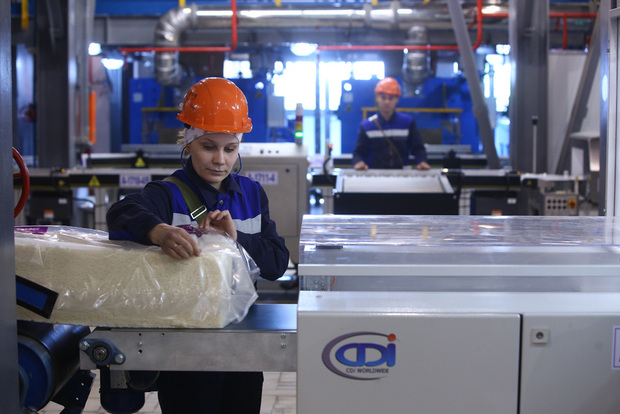
There are no rubber sales problems , though their world prices are significantly fluctuating. But we are selling. We are selling on directs contracts with such companies as Bridgestone, Continental, Pirelli, Michelin, Goodyear, Belshina
Nevertheless, TAIF asked to impose duties on, for example, LD PE…
It offered.
It offered. But why? Are you asking to protect the domestic market from import this way? Does it mean there are sales problems?
All markets – in America, Europe, Near East where we work – have prohibitive duties from 6,5 to 25% that give an advantage to local producers and reduce our profitability to the benefit of these countries. This is why we consider it is correct to equalise competitive opportunities and create equal terms for everybody. For instance, Turkey did not have any duties. Then 3% were imposed. And now duties make up 10%. We are one of the few Russian polymer companies that work in tough competitive conditions in the world polyethylene, polypropylene, polystyrene, polycarbonate, plastic, rubber and other markets. So, In India, duties on our rubbers are up to 25%, in Brasil – 26%.
Because Russia is supposed to have cheap feedstock for petrochemistry that provides local producers an additional margin.
On the contrary, we buy a much more expensive feedstock in Russia than our major rivals – producers from the Persian Gulf countries and southern part of the USA. These producers are also protected with import customs duties on our production. And they bring their goods here, to Russia. For this reason, we proposed that conditions must be equal for everybody if we work in a really honest market. It is a protection of countries' interest.
Do foreign suppliers divest you of a significant market share?
We don't let them occupy the market. But it hurts so to say: we finance their state there, support, while they try to behave like owners in our market. If we lose, our state loses. It turned out that the taxes, which are expended on salaries, education, medicine, we leave this money to Turkey or German or France or Brazil or India. We don't offer more than they do, though it would also be correct, we would support our producers or just equalise the conditions.
What answer to your offer were you given in the Government?
They replied they are still thinking. The decision has not been made, they are studying the situation. And a positive decision may be made.
New ethylene complex
Do you still have plans to build the ethylene complex in Nizhnekamskneftekhim this year?
They have already been adopted. We are carefully and gradually choosing technologies and analyse the market. It is a huge complex. The efficiency of its payback and the period of its presence in the market will turn on the choice of a right approach. This work on Nizhnekamskneftekhim has been carried out since 2007. Many materials have been prepared. Today we are putting out a tender among such companies as Toya Engineering (Mitsui Group), CB&D, Lumus, Linde, etc. We met with the executives of these companies many times. And the work with all secondary level specialists has been prepared.
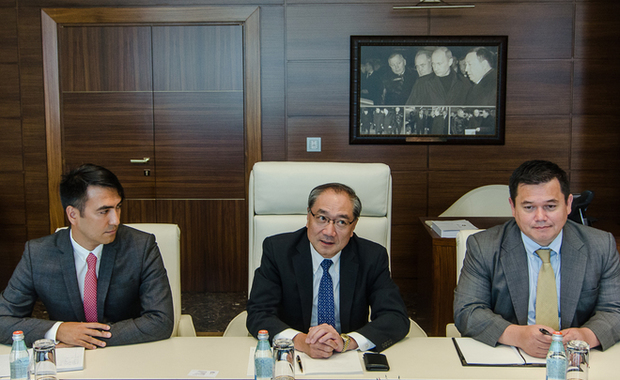
Today we are putting out a tender among such companies as Toya Engineering (Mitsui Group), CB&D, Lumus, Linde, etc.
It was said the construction is due to begin this year. Will it begin?
It has already begun. Water and electricity communication systems are laid, racks are built. Such a big project requires a serious preparation. Foundation of the main facility will be laid in June next year.
Did you come to an agreement with the bank that will finance the project? VTB wanted…
I won't hide there were many banks. We negotiated with all of them. A financing scheme has been chosen – 15% of our own money and 85% of loans. The banks, one of them you have named, are ready to participate. The final decision will be made when the contract on the main facility has been signed because one of the tender conditions presupposes that the participant must take out money via expert and credit agencies from the country the participant comes from. In the future, it will be necessary to correlate the banks with the expert and credit agencies that were chosen.
Won't the sum change? You said it might reduce. Will it be $9bn or less?
Now the project has been divided into four parts.
So, do the two first parts make up about $4,5bn?
Initially, it was supposed to construct a production for 1m tonnes of ethylene. Now this number has been 1,2m tonnes. The volume has been increased but divided into four stages. The first option included 1m tonnes of ethylene at $9bn, which did not suit us, to put it mildly, because market prices for equipment production and construction are much lower.
Because of devaluation?
No. It is done because of the work with those companies that participate in the tender and who found optimal prices for design works, equipment and other services that will be provided by the contractor. The cost of the project won't surpass market prices taking into account prices for energy resources, metals, a slight decrease in construction of petrochemical facilities in the United States and not only in the USA. They did what they needed and reached the start-up and commissioning stage. And many equipment production capacities, contractors are free. It seriously affects the price. It explains the decrease.
Why did you decide to start the project now? Our economy is stagnating, industrial production is not growing. Consequently, the consumption problem is unclear. Nevertheless, you are launching a new big project, while there are analogous projects of Sibur and large-scale plans of Rosneft. Anyway, you don't refuse additional enormous investments.
We analyse the market not only in Russia. We analyse the global market in the spheres where we work. Our researches don't say there is stagnation in our working area. A simple example: we produced 400,000 tonnes of polymers. Now we are manufacturing about 2,5 tonnes of polymers. When we produced 400,000-500,000 tonnes, 50% of them were sold in Russia, 50% was exported. The modern-day situation is the same. What does it mean? It means the use of the production we manufacture is growing in the country.
Is it import substitition, first of all?
Somebody will always buy something abroad. It is up to a purchaser. Let's imagine some production is located on the Russia-Poland border. It is easier to buy in Russia or Belarus because it is closer than Paris. It is difficult to say it is import substitution. But the Russian market is almost 100% provided with the products we are manufacturing now. And the consumption market of our production in the country constantly and annually grows. There is a deficit in some areas, but we are also working on it. Some of our products are in surplus, which are not consumed in Russia at the moment, so they are exported.
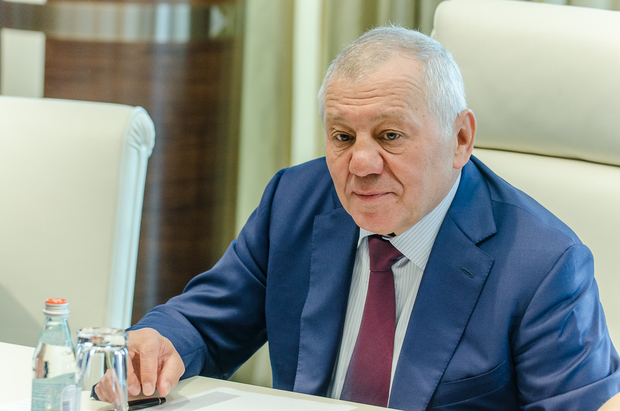
Somebody will always buy something abroad. It is up to a purchaser. <...> But the Russian market is almost 100% provided with the products we are manufacturing now.
Price of money
You plan to take out 85% of the money for the Nizhnekamsneftekhim project. But interest rates are different from the rates that existed in 2007.
As far as I remember,our loan interest rates have never exceeded 8%, excluding in 2010-2012. And we started to take out loans seriously in 1996. An average interest rate has not been over 4-5%. It is connected with the professional activity of our financiers. It is important to not only take it out but also pay it off! Banks find it favourable to work with us. They signed an agreement with us and forgot about it. They receive interests and know we will pay off.
Sometimes they are not pretty sure about it. Do you remember a story of Kazanorgsintez? The company's debt load was over 10 EBITDA. You hardly managed to refinance the debt in Sberbank.
There were not any refinancing problems, especially difficulties connected with it. It was about the price for money. At that moment all our loans were at 5–6% per year. We changed the refinancing scheme in order to reduce the construction period and increase the efficiency of investments in Kazanorgsintez. What does it mean? We were given lines of credit on short-term and long-term loans. We took out short-term loans and built, then took out long-term loans and refinanced. And suddenly the banks refused long-term loan agreements during a crisis. So they created a problem for both themselves and us for no reason. Taking the advantage of the situation, the banks wanted to increase the price of credit resources. And shareholders and our consultants who refer to banks offered to introduce a 2,5-year crisis management, write off a part of the loans and not to pay interests. We finally reached a compromise. We decided to help and support the banks. Interest rates reached 14,75%. The state supported 50% of the loan value. Such a compromise approach, which was supported by the administration of the republic, the vice-PM of the Russian Federation Igor Shuvalov, allowed to reduce the loan value to 8% during the year and lift the state guarantees. But some mass media told that Kazanorgsintez was almost a bankrupt. At that time our President (PM at that moment) Rustam Minnikhanov told everybody, including bankers: 'We all will laugh at we have done today one or two years later. And you all, bankers, will aspire to work with Kazanorgsintez'. So was it. It was you who have told that Kazanorgsintez demonstrates record results.
Don't you think that money for new projects are expensive now in Russia?
We don't look at the interest rate other companies take out loans at. I've told — our level is 4–5%. We can address and take out the amount we need at any time. We don't have problems here. EBITDA in our Group of Companies is 140bn rubles. In the financial sphere, there is an indicator that enables a company to take out a loan equal to EBITDA multiplied by 4. Our resources allow it, and banks know it. We held successful negotiations on Nizhnekamskneftekhim. VTB, Sberbank and other banks have very good offers.
Have you talked to western banks?
Yes. We constantly work with them.
Do they offer more favourable terms than state banks? Or do they ask more because of geopolitical risks?
At the moment we can't equalise the price of loans taken out from Russian and foreign banks. Foreign banks are cheaper, of course. For example, we took out a loan from Raiffeisenbank at 2,6% for 10 years.
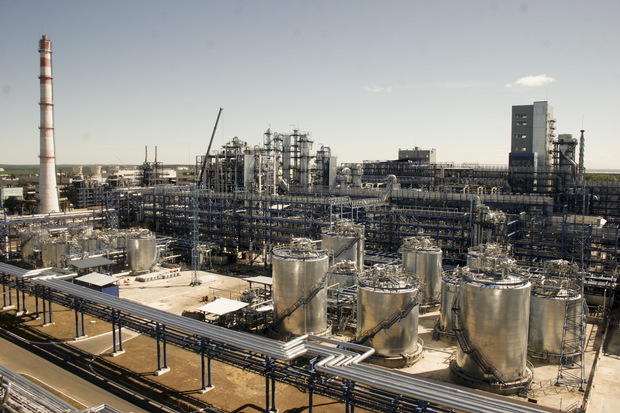
We changed the refinancing scheme in order to reduce the construction period and increase the efficiency of investments in Kazanorgsintez
Did not you plan to attract a partner in order to fulfill the project in Nizhnekamskneftekhim?
What for?
To reduce risks.
Today we don't have credit risks. We will always pay off. Risks that we cannot pay off a part of the money in time appear when we reach a loan limit equal to 600bn rubles. Then we will work with a partner. We plan big projects that are supposed to be fulfilled with big both Russian and foreign companies.
What projects do you mean, for example?
I have no right to make it public. We signed a confidentiality agreement. It is a serious project that will have a positive impact on the economy of Russia.
It seems you don't have any crisis. Other companies are economising and suffering, while you are fine.
We always work as if there was a crisis. All people, all business management elements are tuned for a work as if it was a crisis. We have been working so for 26 years.
Kazanorgsintez and power engineering
Now Nizhnekamskneftekhim has been on the forefront. Are there any big projects in Kazanorgsintez?
Yes, they are included in the development programme of TAIF GC from 2015 to 2030 at a cost of $14bn. It also consists of several stages. The first stage is due to finish by 2020 and reach a 120bn rubles revenue. In general, in this programme TAIF is due reach a total of 1,2tr rubles revenue.
What other projects do you have?
There are many projects. For example, TGC-16 is finishing the construction of the 400 MW gas turbine unit in its Kazan CHP-3. This project will allow to enhance the efficiency of the energy generation capacity from today's 220 MW (while the installed capacity was 420 MW) to 800 MW. Today works on the construction of a new 500 MW plant in Nizhnekamsk have begun. The tender is in the process, all details concerning the technology and optimal scheme have been prepared. World leading companies such as General Electric, Siemens, Mitsui are taking part in the tender. We have big energy projects. Now we have the best tariffs on heat energy for consumers, which are one of the most favourable in Russia and the best throughout Tatarstan. This leadership must be cemented. By 2020, we need to create such a power engineering that would not require an increase of energy capacities during 25 years except efficiency augmentation.
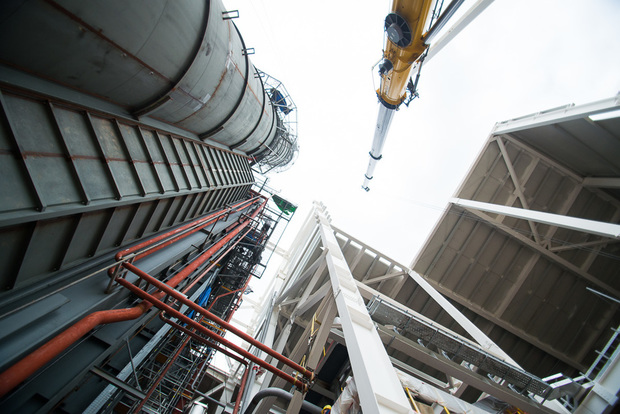
TGC-16 is finishing the construction of the 400 MW gas turbine unit in its Kazan CHP-3
Are you building without capacity supply agreement?
Yes.
Why?
It turned out that capacity supply agreement had been approved when we started to work in power engineering. We sent a request. We were told this issue was considered in the 2000-2005s. It is not going to change, and we won't be included in it.
You could purchase the capacity supply agreement for Kursk CHP-1 from Kvadra that they plan to refuse.
We have our own programme, though its payback period is longer than capacity supply agreement. At the same time our enterprises and we pay additionally for the construction of other plants. We have a choice: to build without capacity supply agreement or not to build at all. We decided to build.
Losses and paradoxes
Are you planning to launch the Heavy Residue Conversion Complex (HRCC) at TAIF-NK this year?
We are sure that we will launch it this year. It is the first technology of such scale in the world. And 95% of light oil products is to be produced from 1 tonne of oil.
How much loss did have due to such maneuver at TAIF-NK?
Don't ask.
Have you managed to break even at least?
No, we haven't. Now almost all refineries are working at a loss. At the same time, it is not only due to tax maneuvers but mostly due to sharp drop in price of energy resources in the world.
Other companies compensate for this by the fact that they increase oil exports.
Not exactly. They work on tolling scheme. And large revenues, received due to a great maneuver of the sale of oil, compensate losses in oil refining. Although, today it is more profitable to export oil than to refine in the country. But we have no oil production.
Are you going to turn to the government, to ask some subsidies in this regard?
The government has partially supported us. Today it is a very difficult situation in oil refining. I think with the launch of this project we will be able to remove some of the problems.
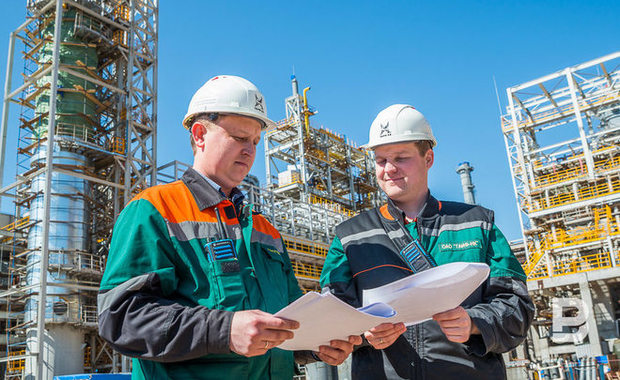
Today, from 100 kg of oil we get about 60-62 kg of light oil, as soon as we start the heavy residue conversion complex we can obtain 95 kg
Due to what? How will it work?
Today, from 100 kg of oil we get about 60-62 kg of light oil, as soon as we start the heavy residue conversion complex we can obtain 95 kg. All our products will be, at 100%, will be of the highest quality Euro-5 standard and higher. It will facilitate our situation. Especially if it is decided to process light oil in Russia, and heavy oil – to sell. This is also one of the paradoxes of our country. Light good oil is exported and heavy oil is processed in our country. We buy heavy oil from oil companies at the price of exported light oil.
Do you mean the project of Transneft on allocation of high-sulphur oil into a separate pipeline? Do you think this project will be implemented? Most oil companies do not support it.
The country is vitally interested in it. The economy will be improved. The depth of oil refining will be increased. Heavy oil, sulfur will be decreased, the environment will be improved, health care costs will be decreased. It is all interconnected. And the volume of tax revenues will increase. I think it will be resolved soon.
After completion of the consolidation of Tatnefteprodukt, will you transfer it in a single brand?
There are a few suggestions. It is impossible not to take into account that Tatnefteprodukt is about 100 years old. But it will be all under a single brand. Filling stations will be separate businesses, warehousing, logistics of petroleum products — the others.
Are you planning to expand with retail if the production of gasoline increases?
We will produce gasoline as much as necessary only for the Republic plus a reserve of 15%. Therefore, all forces will be directed to receive from the refining the quality petroleum products, which are valuable raw materials for the petrochemical industry. It is more profitable.
Does petrochemical industry have problems with raw materials in general?
There is no deficit of natural resources in the Russian market. But there is deficit for some products of primary processing. For ethane, it is associated with the transportation and logistics and it is very expensive. We work with companies of Gazprom, Sibur, Gazprom Neft on these issues. And as for natural gas, oil, butane-propane, isobutane, NGL, etc. — I do not see deficit in Russia. The only question is price. We always offer a good price.
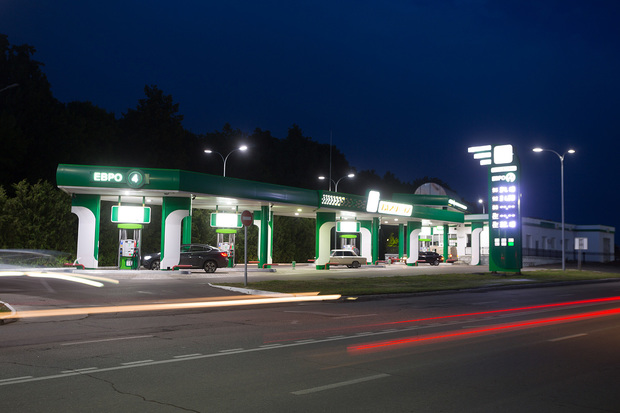
We will produce gasoline as much as necessary only for the Republic plus a reserve of 15%
How to expand
Are you planning to raise the question of construction of NGL pipeline from Western Siberia in order to expand your production?
We were interested in this issue and are interested now, and in the next 10 years will be interested. And we will always work to implement this project. And I think that sooner or later this question will be solved in the interests of the country.
You have mentioned the negotiations with Gazprom and Sibur. What are you discussing?
We constantly work with Sibur. It has a lot of his products, which, besides us, no one buy, and they export the rest of the products. It is always easier for them to sell to us: quickly shipped, quickly received the money, the price is always market – no difference for them whether to export or to sell to us.
Have they invited you to Zapsibneftekhim?
There have been various offers. We agreed that if we can be helpful — we are ready to help. We have a lot of projects here, in Tatarstan, they must be completed. There must be guaranteed stable petrochemical business in Russia. We are close to that Russia had petrochemical production, which is able to compete with all countries of the world.
Have you sent a request to acquire Bashneft? You would have had your own oil. You received an offer, didn't you?
First, Bashneft has its own plants. They mine less than 20 million tonnes of oil and process more than 22-23 million tonnes. Second, they have their own specially sulfur oil. But we know that Tatneft participates in the tender. We have agreed that that if Tatneft succeeds we will participate on a parity basis. We have not sent a separate request.
In your opinion, what price for a controlling stock of Bashneft is fair? The package was assessed at 306 billion rubles.
We have not discussed this issue with the specialists yet.
You should understand how much you are ready to spend, shouldn't you? Do you have a limit of how much you are ready to spend?
I have already named the limits. 600 billion rubles of maximum borrowings.
We have the resources that allow us to attract money and available resources that we have always invest in production, which provide us with monetary resources and guarantee of attracting money.
This is the first time when you got interested outside Tatarstan.
Yes, when at home there is a lot of work there is no reason to go to the neighbors. But this is a special case.
Why all of a sudden? Is Bashneft a really good company?
I can't say that it is only commercial interests. The issues of Bashkir petrochemistry and processing are associated with our petroleum industry. That is why they have a lot of products that we can use in our petrochemical processes, and vice versa. Plus, we have product pipelines, including for oil. By meeting the current mutual needs, after a year you can get a great synergy effect, to improve them and our revenues. That's why we got interested in, gave our consent, said Tatneft: if anything happens — we are with them. This is one of the sources to obtain additional revenues from the interaction.
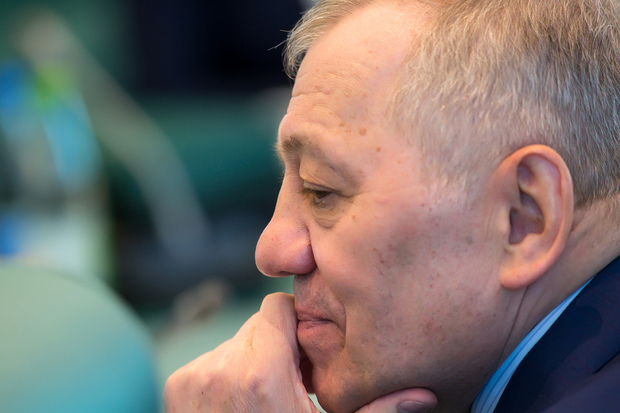
The issues of Bashkir petrochemistry and processing are associated with our petroleum industry. That is why they have a lot of products that we can use in our petrochemical processes, and vice versa
Together with the Republic
Let's talk about the Republic privatization. What have you decided not to redeem the government's stake of Nizhnekamskneftekhim?
There was no offer.
How? The Republic was selling 22%.
We had no offer.
Tatneft bought.
Then it had an offer.
So it turns out if you had an offer you would have bought?
Of course. It would accelerate the implementation of new projects of Nizhnekamskneftekhim.
Does TAIF have a share in Tatneft left?
It is 2.9–3% that we have acquired, as I remember, in 1999-2000.
When the transaction took place, Rustam Minnikhanov said that the shares of Nizhnekamskneftekhim were sold to Tatneft in order TAIF Group and Tatneft complemented each other. How will this work? Will they invest with you, for example, in the ethylene complex?
First, the Republic's leadership has always taken decisions aimed at accelerated development of the Republic. And I think that decisions on Tatneft are connected with it. And, of course, if the shares of Nizhnekamskneftekhim will benefit Tatneft, it is also beneficial for us in order our partner was strong, rich. As people say: 'If your neighbour is rich, your chicken is always fed'. From the fact that they have these actions, we always can sit at the negotiating table with them to discuss how to use these actions so that their capitalization increased.
Why TAIF is implementing the recommendations of the government? After all, you are not state-owned?
Because they are always aimed at accelerating the development of the Republic, including our company.
Everything depends on the one who makes the decisions.
Lucky Republic. With the first President of Tatarstan, as well as with the second one.
In other regions, as a rule, if the leadership begins to interfere in the affairs of the business, everything ends up with a high-profile corruption stories. In Tatarstan there were no too loud scandals. What is the secret?
'A pitcher goes often to the well...' — there is a reason for the saying. It is much cheaper and more profitable to earn honestly and openly and not to hide in the corners. Such sentiments in the Republic are the majority. Of course, we have what you say about, but not in such a large scale, —the Republican law enforcement system watches. Here for business development there are much more opportunities than in other regions. There are free economic zones, the government through the banks gives money. Want to do business? Please, just work yourself. This is one of the main factors that makes the minimal corruption in the Republic.
Is it also the Republic who asked to help Tatfondbank? Kazanorgsintez has put on his accounts 4,5 billion rubles of deposits in order to support at a difficult time.
I can't say that. Last year, the Republic adopted a program for the strengthening and consolidation of financial institutions for the further development of the economy. And we have a vested interest in order real conditions were created not only for Sberbank but also for major banks in the country. We work for export, with the major consumers. It is very important that around us there were created small and medium-sized companies which process our products. They are credited by the banks such as AK bars, Tatfondbank, etc. It is important that they strengthened. Based on the fact that the Republican leadership has decided to enlarge the financial resources of the Republic and recommended to all, including us, to participate, and signed a deal with Tatfondbank.
Is there a risk that you lose the money?
No. The risk is if the Earth turns over. And in this economic conditions, which is now in Tatarstan, I don't see any risk. This is my conviction, grounded by our specialists.
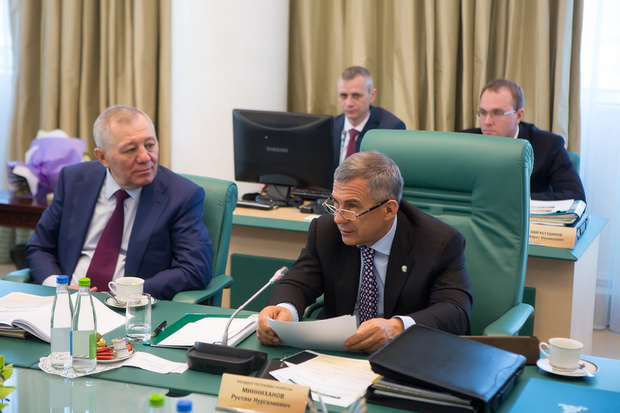
The Republic's leadership has always taken decisions aimed at accelerated development of the Republic. And I think that decisions on Tatneft are connected with it
You still are not going to announce the shareholders?
Shareholders are revealed themselves.
But among those shareholders, who are disclosed, does Radik Shaimiev actively influence the company's activities, its strategy? And Kamil Shaimiev? Are they active in the Board of Directors?
Yes, they act actively. Tough guys. There are also other guys, tougher than Radik and Kamil. All decisions are made by the Board of Directors and approved by shareholders. It is I, of course, who prepare with my team, we have a vigorous discussion. Every plan or a development plan is always associated with renewal, attracting new technologies, innovative financing schemes – sometimes seemingly unrealistic. And there are a lot of questions, and they are all being discussed. And it is unprofitable if I as a CEO will not be sure that the shareholders are convinced that this is a right decision, it is then much easier and quicker for my team to implement the decisions. So there are heated debate going at the Council.
Together with children
In the last two years, the children of the leaders, who made businesses in the early 1990s, are entering the active phase in the Russian business. Children of Alekperov, Kerimov, Roman Abramovich begin to control themselves, to act themselves. It turns out a clash of people, hardened in the 1990s and 2000s, with the people of the new mind. Isn't it explosive?
Well, we will not live forever, whether we like it or not, it still happens sooner or later. The main thing should be determined by the maximum professionalism of those people who will replace. If the children are highly skilled and will be able to lead the business, I think it's a good idea, because those who leave, know them already, educated them, they know what they can do. I know examples of parents who say: 'Hey, Albert, you know how much you work. So I do I. We do not wish this our children. I am trying to dissuade. They have a little bit of work, a little leisure time to go to the theater, listen to music, to be an artist — what else you need?'. But it is a complicated process. And I believe that if children and grandchildren are inclined to this and if they are professionals, then this is the best and ideal option.
But your son, doesn't he work as a deputy now? Do you want him to follow your path?
I don't want them to follow my path. They should decide themselves.
But it builds a character.
Only hardened character is not enough. Although at least he needs to have it, especially as a head. Making a huge, big deal in one field, I personally lost a lot in the other (laughs). And, unfortunately, in the remaining years I will never catch up. I have never helped, didn't give any advice — they choose by themselves. It seems easier when you give advice. But many are not even aware that they take responsibility for their fate. What if you said wrong? Maybe he did not say everything and you decided for him to act a certain way. And it did not work out. And you can't change anything. A rough example — he wanted to get married, and you say 'don't'. Or vice versa — yes, chose him or her. And then life did not work out, how to live then? I have my own views, but this approach, what you're saying — to hand down the business, this is a good option, but only if they are highly qualified to come to such companies that you mentioned.
Is your son able to lead TAIF?
I haven't thought about that. When I am absent – he does.
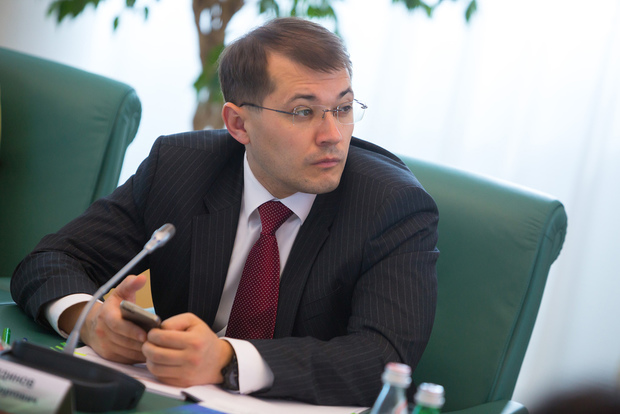
Sometimes three of us leave for a week, two weeks on a business trip, [son] Ruslan stays — he does cope
Does he cope?
There are also other deputies. Sometimes Rustem Sulteyev stays when I leave. Sometimes we leave together, Guzeliya Safina stays. Sometimes three of us leave for a week, two weeks on a business trip, [son] Ruslan stays — he does cope. But I do not have another example. If the question arises in a year or two, I will rely on their decisions and on the decisions of the shareholders. And I will abstain in the vote if the question relates to my children and they are against the proposal. Maybe I don't know everything.
All these issues relate to the further development of TAIF group of companies, a substantial increase of its effectiveness, the implementation of not only industrial but also many large social projects. A lot of issues. We have made a decision that until the end of 2018 the company will conduct a listing on the Russian and foreign exchanges. The development of detailed program of the listing is taken place not for the first year. The head company TAIF himself will be significantly reformed, its infrastructure. But that's a topic for another discussion.
By Vedomosti